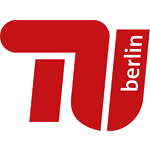Difference between revisions of "Team:Berlin"
Jpalbrecht (Talk | contribs) |
|||
| (One intermediate revision by one other user not shown) | |||
| Line 174: | Line 174: | ||
The idea is to build a modular filter system for wastewater treatment plants which is able to degrade plastic. | The idea is to build a modular filter system for wastewater treatment plants which is able to degrade plastic. | ||
Bacterial flagella, moleculare hair-like structures, are equipped with a combination of enzymes | Bacterial flagella, moleculare hair-like structures, are equipped with a combination of enzymes | ||
| − | that are able to | + | that are able to decompose plastic molecules.</strong></p> |
<button onclick="window.location='https://2015.igem.org/Team:Berlin/Project';" type="button" class="btn btn-lg hidden-lg" style="color: #FFFFFF; background-color: #000080; border-color: #191970;">More Information</button> | <button onclick="window.location='https://2015.igem.org/Team:Berlin/Project';" type="button" class="btn btn-lg hidden-lg" style="color: #FFFFFF; background-color: #000080; border-color: #191970;">More Information</button> | ||
<a href="https://2015.igem.org/Team:Berlin/Project" class="more-informations-white hidden-xs hidden-sm hidden-md"><p><font color="#FFFFFF">More information</font></p></a> | <a href="https://2015.igem.org/Team:Berlin/Project" class="more-informations-white hidden-xs hidden-sm hidden-md"><p><font color="#FFFFFF">More information</font></p></a> | ||
| Line 199: | Line 199: | ||
<h2><img src="https://static.igem.org/mediawiki/2014/f/ff/Team_Berlin_igem_questionmark.png" alt="" class="teaser-icons hidden-xs" />Team</h2> | <h2><img src="https://static.igem.org/mediawiki/2014/f/ff/Team_Berlin_igem_questionmark.png" alt="" class="teaser-icons hidden-xs" />Team</h2> | ||
| − | <p><strong>Our team is made up of | + | <p><strong>Our team is made up of 12 undergraduates and postgraduates from different disciplines as |
well as our supervisors. The iGEM Team Berlin 2015 is an assembly of highly motivated | well as our supervisors. The iGEM Team Berlin 2015 is an assembly of highly motivated | ||
students from different universities. Due to the multidisciplinarity our team is able to find | students from different universities. Due to the multidisciplinarity our team is able to find | ||
Latest revision as of 21:18, 18 September 2015
Enzymatic Flagellulose

Project
This year’s iGEM project of the Berlin team is all about plastic -
to be specific: microplastic and the clearance of our water with the aid of Synthetic Biology.
The idea is to build a modular filter system for wastewater treatment plants which is able to degrade plastic.
Bacterial flagella, moleculare hair-like structures, are equipped with a combination of enzymes
that are able to decompose plastic molecules.
Team
Our team is made up of 12 undergraduates and postgraduates from different disciplines as well as our supervisors. The iGEM Team Berlin 2015 is an assembly of highly motivated students from different universities. Due to the multidisciplinarity our team is able to find different strategies to solve complex problems in synthetic biology. Under the direction of Prof. Dr. Nediljko Budisa group leader of the Biocatalysis Group at the TU-Berlin. Our lab is located at the Müller-Breslau-Straße 10, 10623 Berlin (Germany).
Safety
One very positive aspect of our Enzymatic Flagellulose is that it does not consist of any microorganisms, but of their products or parts. Our modular filter is biocompatible, which means it is environmentally friendly — our product should not affect the environment negatively, nor should it pose a threat to humans since no dangerous compounds are involved.
Synenergene
SYNENERGENE is a four-years mobilization and mutual learning action plan (MMLAP) supported by the European Commission under the 7th Framework Programme. The project aims to contribute to Responsible Research and Innovation (RRI) in synthetic biology by establishing an open dialogue between stakeholders concerning synbio’s potential benefits and risks, and by exploring possibilities for its collaborative shaping on the basis of public participation.
Notebook
In our Notebook we provide a summary of our labwork and an overview over the used protocols. The daily labwork is summarized in weeks in order to achieve a better overwiev. The protocols are provided in pdf format to be able to download and redo the protocols for further teams.
Thanks to


















 Enzymatic Flagellulose
Enzymatic Flagellulose